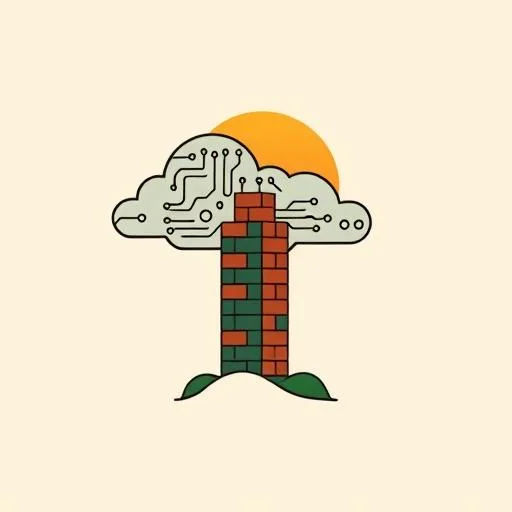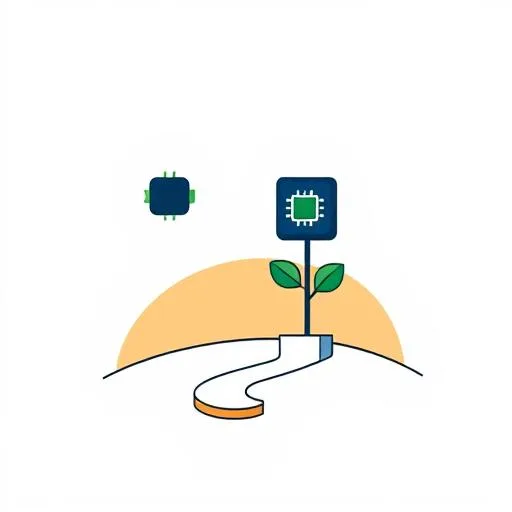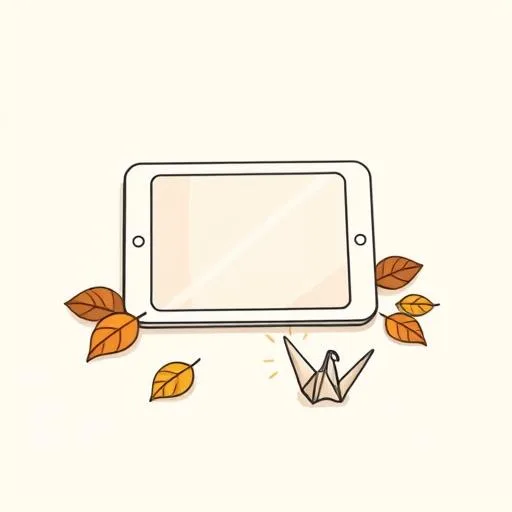
Ever tried building a Lego tower when half your bricks are missing? That sudden scramble—grabbing odd shapes just to keep the structure standing—is how the world felt during the great chip shortage. Now, picture two European innovators quietly reshaping that puzzle: ASML, the Dutch company making those impossibly precise machines that craft microscopic circuits, just invested heavily to support Mistral AI, France’s rising star in artificial intelligence. No fanfare, no superhero poses—just steady hands putting foundational pieces where they’re needed. Feels familiar, doesn’t it? Like those rainy afternoons when your kid insists on rebuilding their block castle just one more time, even when clouds hang low. So, what does this mean for our kids? Suddenly, those abstract headlines about ‘tech wars’ aren’t so distant—they’re about crafting spaces where curiosity can take root without waiting for permission. How do we ensure their tools grow with their curiosity?
The quiet building blocks of tomorrow’s playgrounds

Europe’s recent push for making sure tech tools are always there when kids need them isn’t really about politics—it’s about making sure kids never face empty shelves where their favorite learning tools should be. Remember that panic when global shortages left playgrounds missing equipment last year? That’s the reality chip dependence created. The EU Chips Act aims to weave resilience into our foundations, gathering over €43 billion to secure reliable supply chains. It turns out, protecting tiny circuits protects big dreams—like ensuring tablets powering creative apps stay charged during long flights or family road trips. When ASML anchors its position as Mistral’s top shareholder through this €1.3 billion partnership, it’s not just strengthening European tech sovereignty. They’re quietly saying: Our kids deserve tools that won’t vanish mid-adventure. That stability? It’s the bedrock beneath every ‘let’s try something new’ moment we share with our children. Makes you rethink those Lego bins, doesn’t it—how every piece, no matter how small, holds up the whole universe they build.
Why ‘who made this?’ matters more than ‘what it does’

We often focus on what tools do for our kids—’This app teaches letters!’ ‘That game sparks creativity!’—but rarely ask where they come from. Chip shortages taught us hard lessons: what if your child’s favorite storytelling app suddenly vanished because servers needed unobtainable parts? Research shows Europe’s drive for tech independence aims precisely to prevent these gaps, creating ecosystems where innovation thrives locally without relying on distant suppliers. Imagine explaining to a seven-year-old how their tablet’s magic relies on machines finer than raindrops crafting invisible pathways. You wouldn’t drown them in EU Chips Act details—hear their wonder instead. ‘So tiny roads make the music play?’ they might ask. That’s the gold: turning abstract concepts into tangible marvels. Turns out, even invisible roads need maintenance! When Mistral’s AI potentially optimizes ASML’s machinery, it’s not corporate jargon—it’s ensuring the next generation of tools arrives reliably, so our kids keep discovering without interruption. Next time you recharge tablets after park adventures, whisper a quiet thanks to the engineers building bridges we’ll never see.
Nurturing resilience: When tech breaks, imagination blooms

Let’s be real—sometimes the tablet dies mid-cartoon. Or Wi-Fi vanishes on vacation. Those ‘uh-oh’ moments? Perfect openings to weave resilience into play. Europe’s strategic push ensures fewer such surprises, but we’ve got room to build flexibility now. Try this: when screens go dark, pivot to cloud shapes or leaf-rubbing art. Notice how quickly frustration turns to ‘look what I made!’ It’s in those unplanned moments that their creativity truly shines. It mirrors how ASML and Mistral turn challenges into innovation—using AI to refine chip production after shortages hit hard. Protecting supply chains is vital, yet nothing beats the joy of watching a child MacGyver a lost toy into something new using string and cardboard. That adaptability? It’s the real superpower no chip shortage can disrupt. As parents, we balance digital tools with dirt-under-fingernails creativity because resilient kids learn to navigate both worlds. They’ll need that balance when they inherit breakthroughs born from today’s European collaboration—tools that spark questions, not just answers.
Planting seeds for lifelong wonder

The most thrilling part of ASML’s move isn’t the billion-euro headlines—it’s how these partnerships model curiosity for young learners. Mistral’s AI could one day power apps letting kids design virtual gardens that bloom based on real weather patterns, linking overcast afternoons like today’s to science in their pockets. But the magic happens outside screens: when they run outside to check if raindrops match their digital predictions. That’s the heart of mindful tech use—not replacing sidewalk chalk with simulations, but using both to ask bigger questions. The EU Chips Act’s focus on skills and research underscores why nurturing wonder matters: future innovators will need hands-on grit alongside digital fluency. So next park visit, swap devices for a scavenger hunt. ‘How do you think flowers drink rain?’ you might ask. Their answer won’t come from a chip—it’ll bloom from the space we create between ‘let’s google it’ and ‘let’s go see.’
Tomorrow’s tools, today’s conversations

This isn’t just about Europe’s tech independence—it’s about framing innovation as shared stewardship. ASML’s board seat at Mistral signals deep collaboration, much like how we co-create stories with kids using flashlights under blankets. We guide without scripting; they lead with wild ideas. Similarly, these companies aren’t building walls against US giants—they’re weaving stronger local roots so global growth feels inclusive. For parents, it’s a nudge: discuss who benefits from the tools we use. ‘Why might French AI help classmates everywhere?’ you could ponder over leftover pizza. Simple chats like this plant seeds for ethical thinking—more vital than any spelling app. As clouds lift after rain, remember: every chip powering a child’s discovery began as someone’s ‘what if?’ Let’s raise kids who ask that boldly, knowing secure foundations let imaginations run wild.
Source: ASML becomes Mistral AI’s top shareholder after leading latest funding round, Economic Times, 2025/09/07 16:26:00
